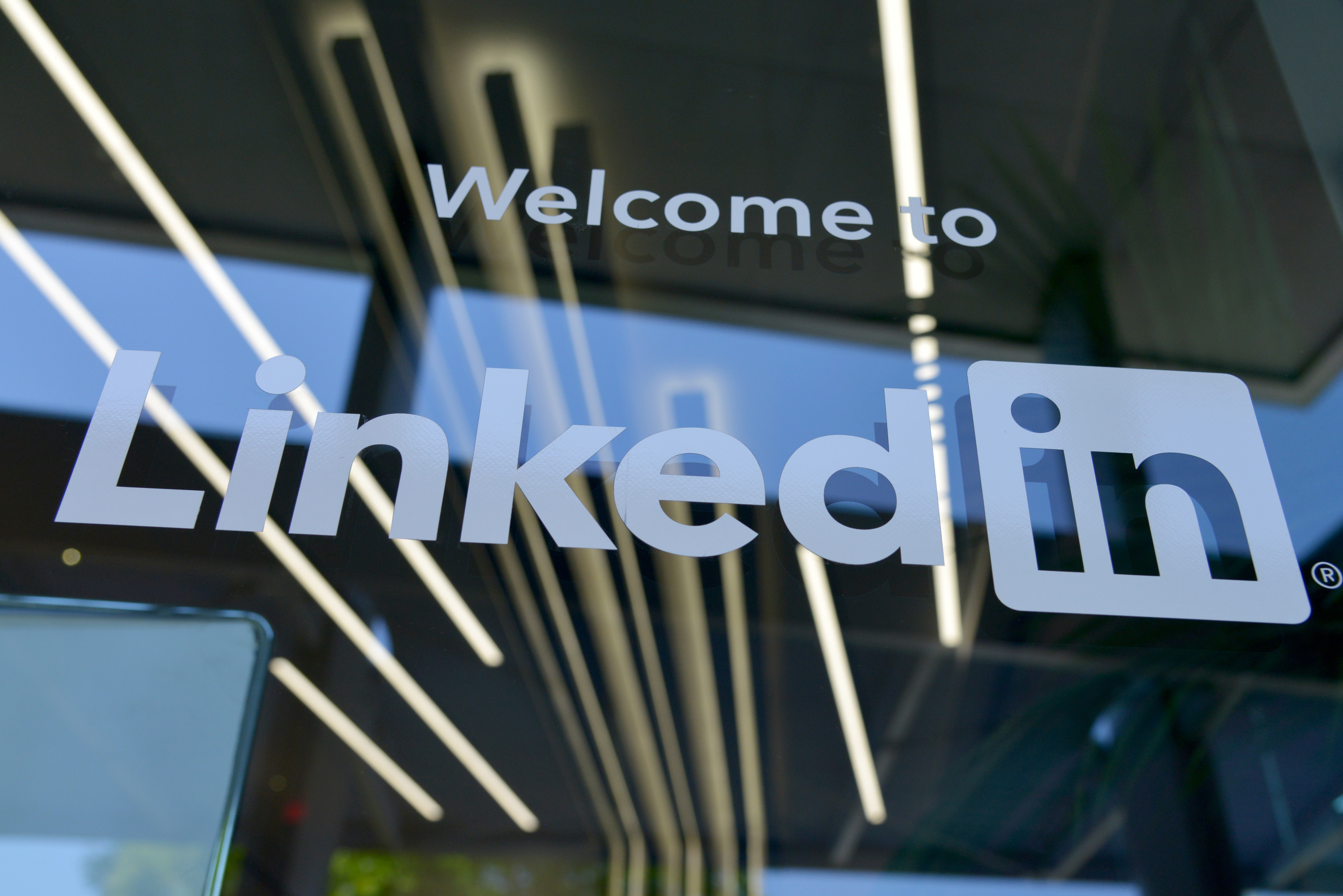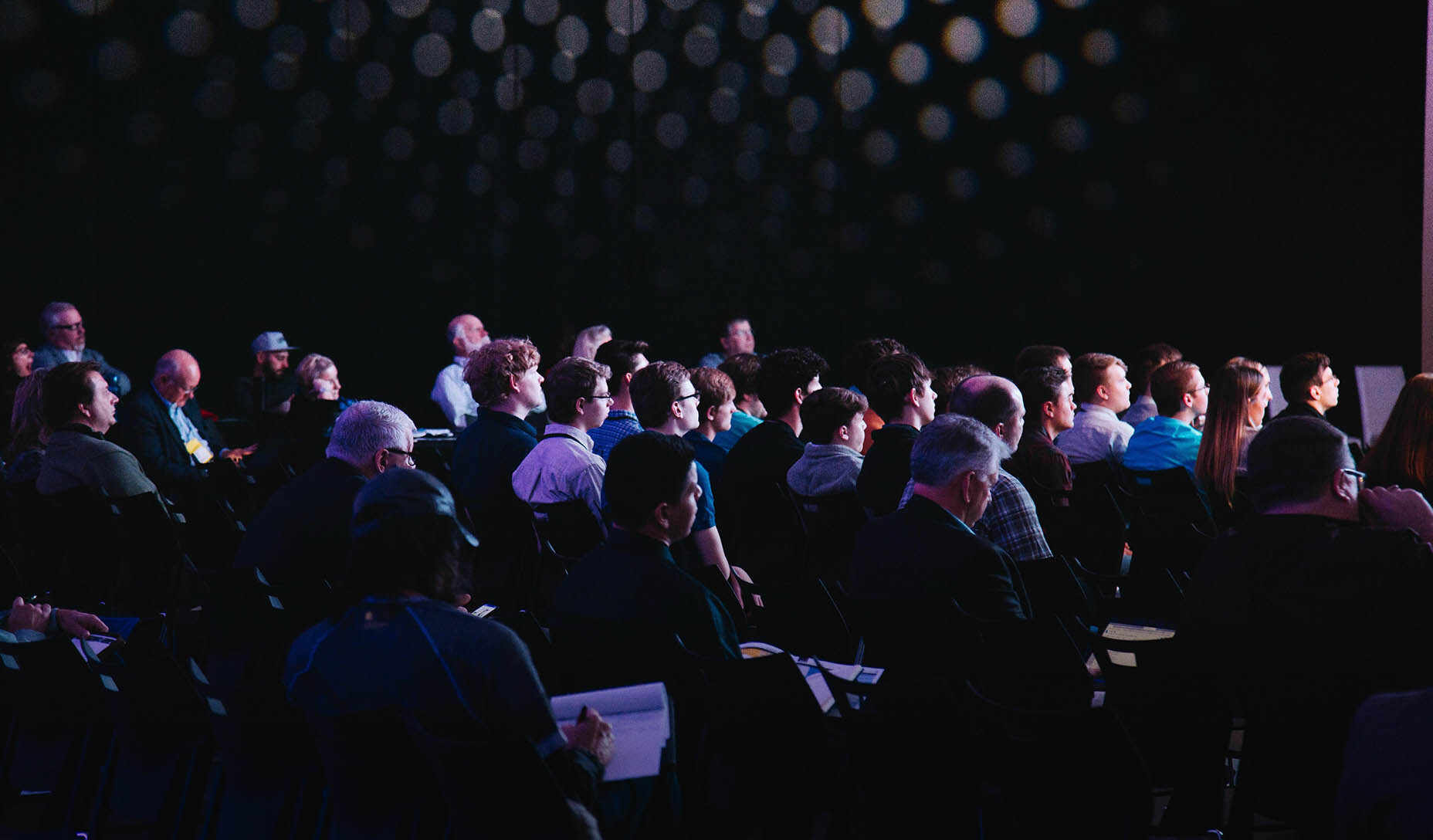Trade shows have long been an integral part of the global business ecosystem. But when COVID-19 caused the cancellation of events around the world, business leaders turned to virtual conferences and networks to fill the gap. Now, they’re leveraging both alternatives to make connections on and offline.
This article will take about 4 minutes to read
The concept of the trade show has been around for as long as people have been selling goods or services. In other words, forever. From the ancient bazaars in the Middle East to marketplaces in medieval Europe, all the way to the Mobile World Congress in Barcelona today. Trade fairs are not only a place to meet customers, build partnerships and sell products or services but also to express ideas as well as showcase innovation.
Every industry has its own lineup of events each year. With hundreds of events of various sizes, focuses, and specialties taking place around the globe, it’s estimated that CEOs and business leaders spend over 700 hours per year traveling.
For CEOs, especially those running global companies, this kind of face-to-face interaction is a vital part of the business. Fairs, conferences and shows have historically been the only places that boast this global range of industry-specific leaders who are looking to do business.
Connections are Worth the Investment
For Gabriel Rebolledo, CEO of Rebofer Seafood Ltd., the investment of travel time, as well as the cost, has been well worth it.
“We regularly attend fairs,” Rebolledo shares. “The most important is the Seafood Brussels Show. This fair brings together the largest players in the fish business from all over the world. By attending, I’m able to visit all of them, get together with clients, attract new clients when possible, connect with people on ideas & trends.”
For Rebolledo, and many other business leaders, industry-specific fairs have provided an ideal venue to monitor changing needs within respective industries.
“We always go with the idea and the intention of generating new connections and being able to offer the possibilities of the product that may arise,” Rebolledo explains. “But more than that, at the end, this fair has become an international lobby that brings everything together. It is the place to search for new alternatives, opportunities, and emerging markets.”
Enter COVID-19
As the pandemic erupted around the world, conferences, fairs and events of all kinds were quickly called off. Businesses were forced to adapt to restrictions imposed by varying levels of lockdown.
Digital communication tools saw a subsequent boost that overshot even the most optimistic of growth predictions. Businesses moved to e-commerce platforms to push online sales. Tools such as Google Suite, Zoom, and Slack became our digital workspaces. But what about the conferences?

This one aspect of business has remained resistant to digitization. Platforms like LinkedIn are great to build and maintain one’s network. However, industry events are still the primary way that CEOs around the world are interacting with counterparts and monitoring emerging opportunities for their businesses.
Having taken away these crucial opportunities for collaboration, COVID-19 could have a much harsher impact on companies such as Rebofer Seafood. A seafood company out of Chile, Rebofer relies on international partners to do business.
“The national market is not that big and there are quite a few players who are established,” explains Rebolledo. “We are totally focused on the international market.”
Delivering in Digital Form
Several organizations are working to remedy this by moving scheduled conferences online. Webinars are taking place with expert panels, speaker events that can be recorded and shared, or even live events with interactive Q&A sessions. Taking away the barrier of travel has made it easier for people to attend, leading to a much wider and inclusive audience.
In terms of sharing ideas and discussing emerging needs within industries, this is an incredible evolution. However, they can’t replace the personal interactions and one-to-one connections that you get from attending a conference.
This is where digital deal-matching platforms, such as Opportunity Network, come in.
“With fairs, conferences, and events cancelled, Opportunity Network is one of the only solutions left in the market,” explains Brian Pallas, CEO & Founder of Opportunity Network. “Our aim is to provide a way for all reputable CEOs and business leaders worldwide to keep connecting; digitally.”
Within the first month of the near-global lockdowns, Opportunity Network saw a 600% increase in connections on the platform. Month over month, this number has continued to grow. Business leaders are realizing that the effects of this pandemic, including not being able to gather in large numbers, will continue to impact conferences for months to come.
“Through Opportunity Network, we’re able to make offers to clients and materialize those offers all online,” says Rebolledo. “This way, we can continue doing international trade, and supplying clients worldwide.”
Moving Forward or Reverting Back?
With over 7,500 deals posted across 100+ industries and 120 countries, Opportunity Network is the digital version of the most diverse fair in the world. All that considered, some believe that the missing aspect of speaking face-to-face and sealing a deal with a handshake is something that cannot be replaced. So when the world finally opens up again, will people keep moving forward with the practicality of digital deal platforms? Or will they jump back to the traditional conferences?
Real Estate Investor Noah Rosenfarb, has found that the best practice is balance. Before joining Opportunity Network, Rosenfarb regularly attended trade shows, conferences, and fairs focused on the real estate industry.
“When you meet someone at a trade show you have to start from the ground floor of a relationship,” he shared “You don’t yet know where they come from and what they’re looking for.” After investing your time into building that relationship, you may find that they have processes or goals that don’t fit with what you’re looking to do.
Rosenfarb still attends trade shows but has now multiplied his lead growth by simultaneously connecting with members on the platform. “I might be able to meet ten people on Opportunity Network within a couple of hours of clicking around,” he shared. “Everyone is credible, they have a real business, and they’re the type of people who you want to do business with. They’re doing the types of deals that are significant & real.”
Rosenfarb Shares the Benefits of the Platform
Venture capitalist James Kenefick has also found success in combining the digital network with travel. Using the network in tandem with his travel schedule, Kenefick made connections on the platform and set up face-to-face meetings ahead of his arrival at a conference. Attending between 80-100 conferences around the world over the past four years, Kenefick found that Opportunity Network multiplied the outcomes of his meetings.
“It was really effective!”, Kenefick explains, referencing this method. “It supplemented my whole calendar because I could drop meetings in and coordinate ahead of time. This was the real “Aha!” moment for me, the realization that this is a platform that I should be using more, opening up new and interesting relationships – all over the world.”
Finding Your Fit
There are many contrasting opinions on what a post-pandemic world will look like. As with most predictions, reality will likely fall somewhere in the middle. Now that companies have experienced the benefits and efficiencies of digital conferences, communication and practices, it’s hard to imagine that they will go back to their yearly 700 hours of travel. At the same time, no digital technology to date has replaced people’s desire to meet face-to-face.
The reality of each company will be different as CEOs find their best balance between digital efficiency and traditional gatherings.

Noah Rosenfarb
Real Estate Investor

James F. Kenefick
Managing Partner at Azafran Capital Partners




